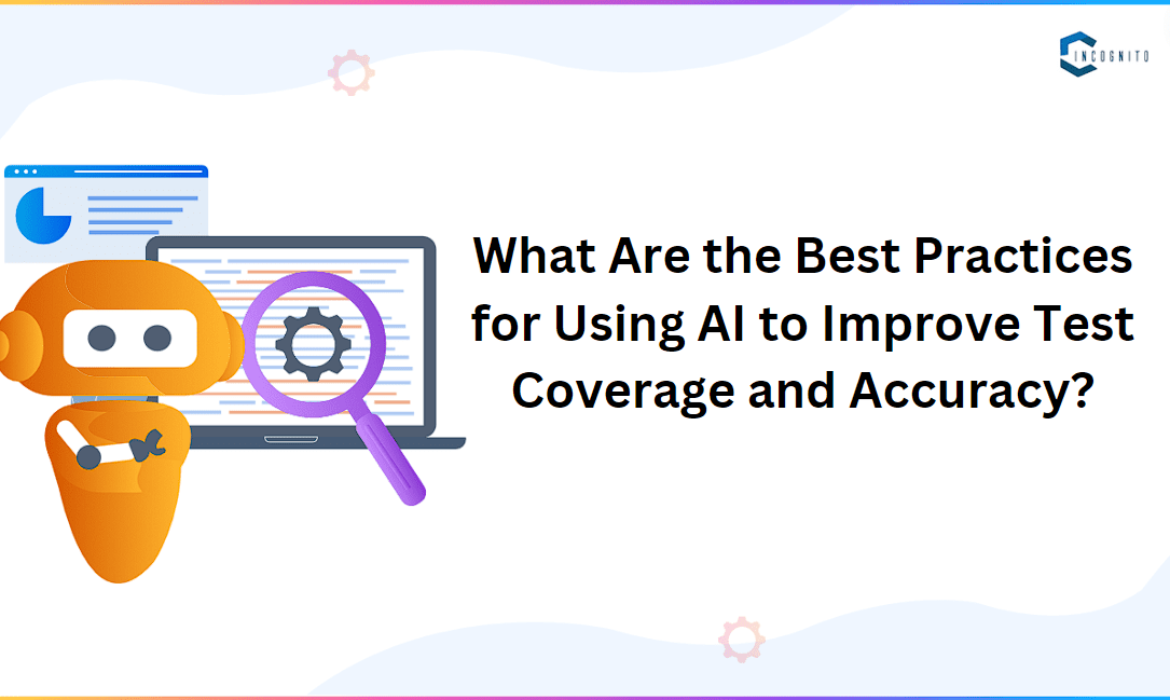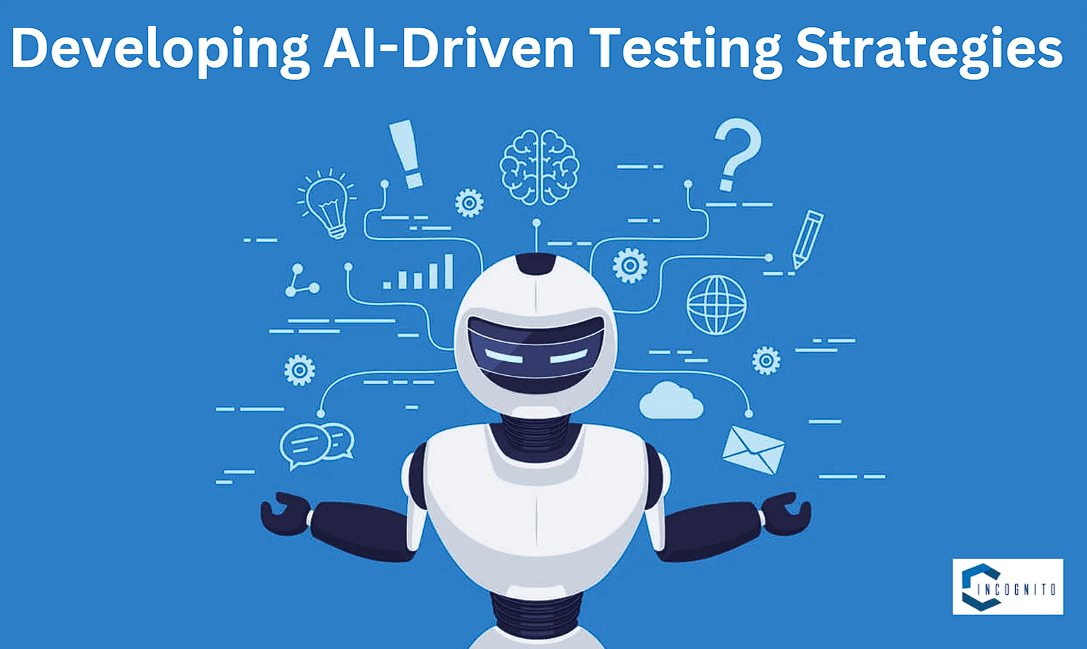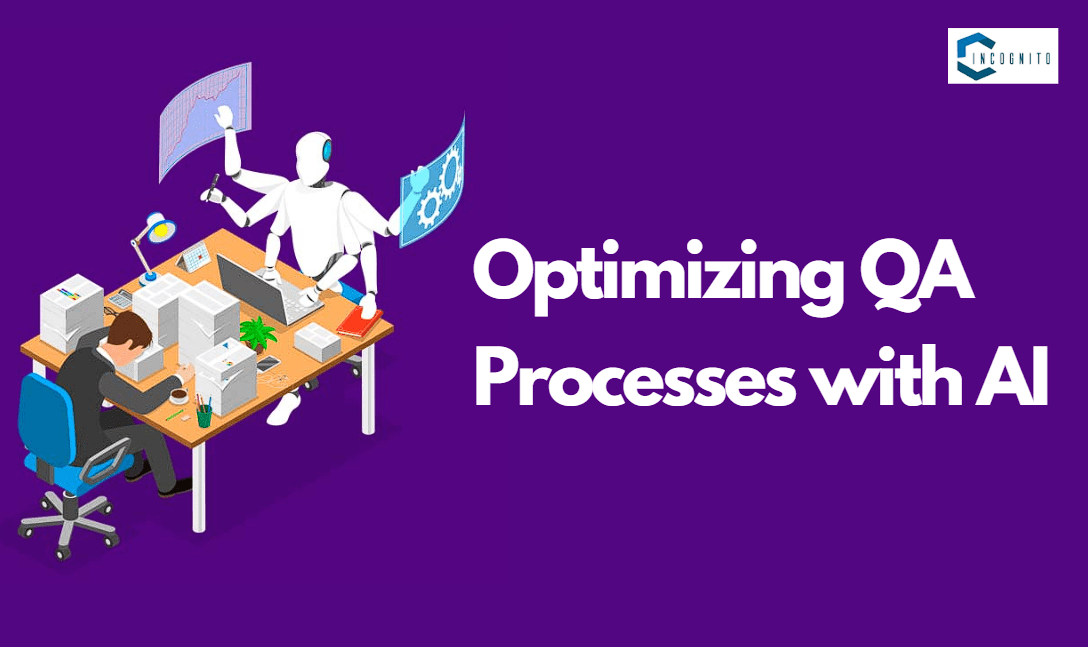
Artificial Intelligence is changing the dimensions of software testing and offering unparalleled opportunities to increase coverage and accuracy. AI-enabled tools identify comprehensive test cases, find hidden patterns, and improve defect detection to an extreme level while reducing human efforts and missed defects to a minimum. These advancements are particularly needed in today’s fast-paced development environments where traditional testing methods can no longer cope with rapid release cycles.
AI will be strategically implemented in the quality assurance processes. Equipping QA teams with machine learning algorithms and data analysis capabilities will help them invent and work on intelligent test automation frameworks, which are adaptive and improving over time. This adaptation allows performing the root cause analysis with much higher efficiency and enables testers to focus on more complex scenarios requiring human insight.
In turn, organizations are supposed to institute good practices that best suit them. This encompasses the integration of AI-driven testing into the prevailing CI/CD pipelines, using model-based testing techniques, and applying behavior-driven development methodologies. This shall enable the teams to understand the best way to use AI for software testing. Hence, increasing efficiency and reducing the cost to meet higher-quality software products.
Key Takeaways
- AI enhances test coverage by generating comprehensive test cases and identifying hidden patterns.
- Integrating AI into QA processes improves efficiency and accuracy in defect detection.
- Adopting AI-driven testing strategies can lead to faster time-to-market and reduced testing costs.

Developing AI-Driven Testing Strategies
Wanna Read More? Click on the link: The Cutting-Edge AI Content Detector
Developing AI-Driven Testing Strategies
AI-driven testing strategies leverage advanced technologies to enhance test coverage and accuracy. These approaches utilize machine learning, predictive analytics, and historical data to generate more effective test cases and improve overall software quality.
Leveraging AI for Test Case Generation
AI algorithms can analyze code structures and generate comprehensive test cases automatically. This process reduces manual effort and improves test coverage significantly. AI testing tools can identify edge cases and complex scenarios that human testers might overlook.
Test case creation becomes more efficient as AI learns from previous testing cycles. It adapts to new code changes and generates relevant test cases accordingly. AI-driven test generation also helps maintain test suite relevance as software evolves.
AI can prioritize test cases based on risk factors and historical defect patterns. This ensures critical areas receive adequate testing attention.
Effective Use of Machine Learning Algorithms
Machine learning algorithms form an integral part of an AI-driven test strategy. These algorithms analyze the pattern in the test results and find potential issues before they blow out of proportion.
- Supervised learning techniques help classify defects and predict failure points. Unsupervised learning algorithms can detect anomalies in system behavior.
- Reinforcement learning improves test execution strategies over time. It optimizes test sequences and resource allocation based on past outcomes.
- Natural language processing enables AI to understand and generate test scripts from requirements documents. This bridges the gap between specifications and test cases.
Incorporating Historical Data and Predictive Analytics
Historical test data provides valuable insights for AI-driven testing strategies. By analyzing past test results, AI can identify trends and patterns in defect occurrence.
- Predictive analytics use this historical data to forecast potential issues in new code changes. This proactive approach allows testers to focus on high-risk areas.
- AI algorithms can correlate code changes with historical defects. This helps pinpoint areas that require more thorough testing.
- Time series analysis of test data helps to predict future test outcomes. It enables testers to allocate resources more effectively and plan testing cycles.

Optimizing QA Processes with AI
Learn More: The Role of Artificial Intelligence in SEO
Optimizing QA Processes with AI
AI-powered tools are transforming quality assurance, enhancing efficiency and accuracy across test execution, defect detection, and maintenance. These advancements enable QA teams to achieve higher test coverage and faster results.
Improving Test Execution and Automation
AI enhances test execution by intelligently prioritizing and scheduling tests. Machine learning algorithms analyze historical data to identify high-risk areas and optimize test case selection. This approach focuses resources on critical components, reducing overall testing time.
AI-driven test automation tools can generate and maintain test scripts automatically. These tools learn from existing test cases and application behavior, creating new tests that cover edge cases human testers might miss. As a result, test coverage expands significantly.
Natural language processing allows QA teams to create test cases using plain English. AI then translates these descriptions into executable scripts and also allows test creation by non-technical team members.
Advancing Defect Detection and Diagnosis
AI excels at pattern recognition, making it invaluable for defect detection. Machine learning models can analyze vast amounts of test data to identify anomalies and potential bugs that might escape human notice.
Visual AI tools compare application screenshots against baseline images, detecting even subtle UI changes or rendering issues. This approach is particularly effective for cross-browser and responsive design testing.
AI-enabled diagnostic tools provide deep insights into the root causes of failures. Thus, their analysis tools identify the source of problems through parsing error logs, code changes, and test results to speed up the debugging process.
Enhancing Test Maintenance and Adaptability
Self-healing test automation, powered by AI, can adapt to minor UI changes automatically. When elements shift or are renamed, the AI adjusts test scripts accordingly, reducing maintenance overhead and test flakiness.
AI algorithms can predict the impact of code changes on existing tests. This foresight allows QA teams to proactively update affected test cases, ensuring continued relevance and accuracy.
Machine learning models continuously learn from test results, refining their ability to predict failures and optimize test suites. This adaptive approach ensures that QA processes remain effective as applications evolve.
Conclusion
AI-powered test automation has enormous potential to significantly increase both test coverage and accuracy. Machine learning algorithms will help teams create more comprehensive test cases and detect subtle defects that may evade human testers’ capacity for detection. Testing strategy improvement can also be continuously pursued through intelligent analysis of test results. Because of the continuous development in the use of AI technology, it is highly expected that integrating AI into quality assurance processes will become inevitable in assuring robust software quality.
Curious to Learn More? Click Here:
What is Bing AI Image Generator? Is it worth the effort in 2024? Find out here



